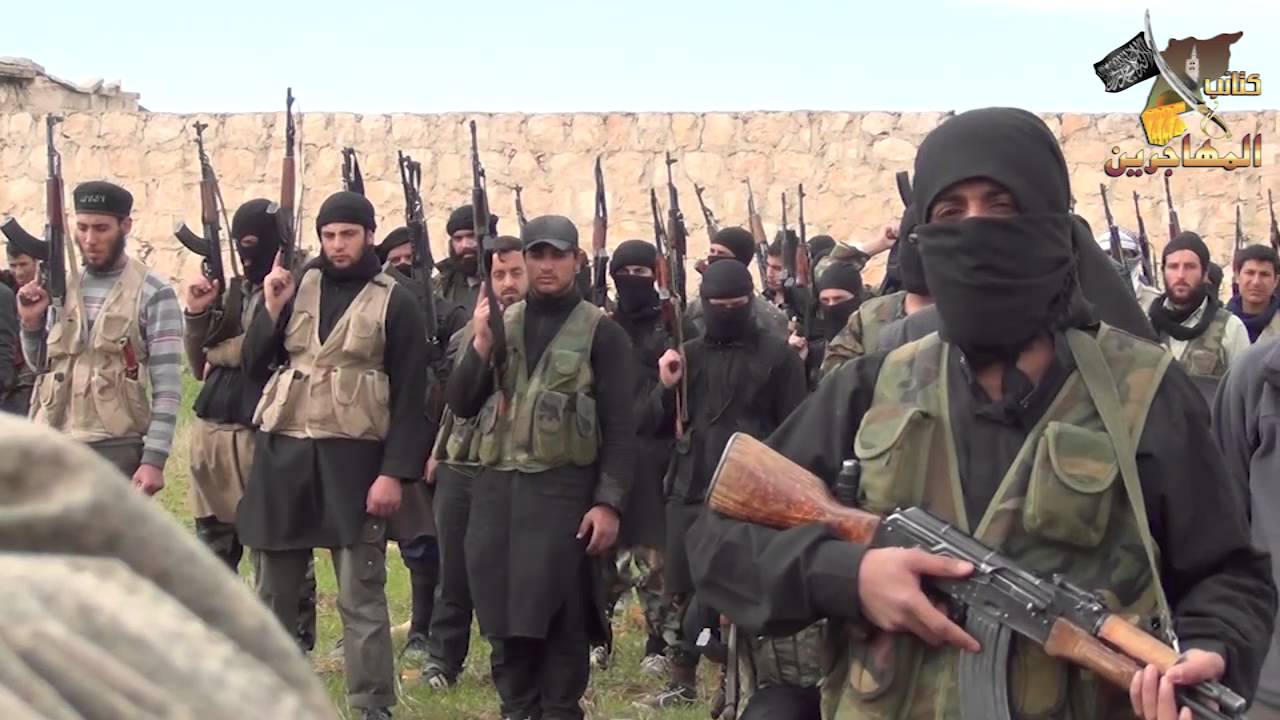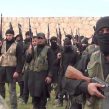
BRIEFS
Publication: Terrorism Monitor Volume: 11 Issue: 23
By:

SYRIA’S ARMY OF THE MUHAJIRIN PLEDGES ALLEGIANCE TO THE ISLAMIC STATE OF IRAQ AND SYRIA
Andrew McGregor
On December 2, the Islamist Army of Muhajirin and Ansar in Bilad al-Sham issued a statement announcing it had declared its baya’a (oath of allegiance) to the Amir al-Muminin (commander of the faithful) Abu Bakr al-Husseini al-Qurayshi al-Baghdadi, leader of the al-Qaeda affiliated Islamic State in Iraq and Syria (ISIS). [1] According to the document, the group’s decision to place itself under ISIS command came after the Muhajirin (“emigrants”) and ISIS had conducted a number of joint operations. The statement was signed by the “former Amir of the Army of the Muhajirin and Ansar, Omar al-Shishani” and the “former Shari’a judge of the Amir of the Muhajirin and Ansar, Abu Jafar al-Hattab.”
The Muhajirin are dominated by fighters from the Northern Caucasus. They are led by Abu Omar, an ethnic Chechen from Georgia’s Pankisi Gorge, who has established a reputation for honesty as well as fighting skills due to his rejection of abuses against Syrian civilians by foreign fighters (see Eurasia Daily Monitor, August 9). Besides Chechens (estimated to form at least half of the Muhajirin), the group includes a reported large number of Daghestanis and ethnic Tatars and Bashkirs from the Middle Volga region (see Eurasia Daily Monitor, September 25). Components of the Ansar al-Muhajirin listed as giving their approval of the baya’a include the Arab mujahideen, the Turkish mujahideen, the mujahideen from the Caucasus, the European mujahideen, the heavy arms detachment, the commando detachment and the administrative council.
The statement appeared to be an elaboration of an earlier and much shorter announcement issued on November 21, in which the Muhajirin Brigade swore allegiance to the leader of ISIS, except for “those brothers from the Caucasus Emirate who had already sworn their oath to Emirate leader Dokku Umarov.” The announcement provided few other details besides citing several hadith (sayings or teachings of the Prophet Muhammad) supporting the idea that only members of the Quraysh tribe (as al-Baghdadi is alleged to be) are suitable for ruling the Caliphate (a notion disputed by many Islamic scholars who claim the hadiths refer only to conditions in the first era of Islam). [2]
According to the group’s media officer, Abu Hamza al-Muhajir, the group believes that:
Abu Hamza also referred to the apocalyptic predictions of Islamic eschatology that are set in al-Shams (the land of the Levant, including Syria) involving the arrival of the Mahdi (the expected one), the return of the Nabi Issa (Prophet Jesus) and their battle on the day of resurrection with al-Dajjal (“the false Messiah,” roughly in the role of the Anti-Christ of Christian eschatology):
The Muhajirin recently completed “Operation Fatih” in the southwestern part of Aleppo governorate, claiming to have seized seven apartment towers and two villages as well as T-72 tanks and an anti-aircraft gun. The group claims that their victory brings them closer to the road connecting Aleppo with the south. [5]
Notes
1. “Statement of the Baya’a of the Army of Muhajirin and Ansar to the ISIS,” December 2, 2013, https://www.ansar1.info/showthread.php?t=47411.
2. “Umar al-Shisani Swears an Oath to Abu Bakr al-Baghdadi,” November 21, 2013, https://fisyria.com/?p=1586.
3. Islamic News Agency Haq: Muhajirin Battalion in a comprehensive interview: “Our goal is to liberate Syria from the Assad regime and establish the Islamic state,” April 14, 2013, https://www.ansar1.info/showthread.php?t=45493.
4. Ibid.
5. “Operation Fatih,” https://fisyria.com/?p=1630.
AQAP COMMANDER SAYS “WAR ON TERRORISM” WILL RUIN U.S. ECONOMY
Andrew McGregor
Jihadi forums have begun posting a recent interview conducted with al-Qaeda in the Arabian Peninsula (AQAP) commander Nasr bin Ali al-A’ainisi by Yemen’s al-Wasat daily. In the course of the interview, al-A’ainsi explained why AQAP prefers armed rebellion to politics, saying that the movement rejected partisanship and democratic activities. When confronted by systems that oppose religious principles, it becomes impossible to form a political party because the imperative is to “remove this system” with all available means, “including jihad and forming an armed organization.” To turn to democracy and the political process would be a type of surrender: “Abandoning arms under a colonial crusader’s control and hegemony, means acceptance and subordination and bowing before those occupier, and leaving arms under the absence of Shari’a and ruling with what Allah have not revealed, means accepting this reality.” Furthermore, he defended armed struggle as ineffective, saying that the “War of Terror” had bankrupted the U.S. economy, claiming this as a victory for his movement.
The AQAP commander warned that a recent direction from al-Qaeda leader Dr. Ayman al-Zawahiri ordering jihadis to refrain from killing non-combatants “even if they are the families of those who fight us as much as possible” would have little effect on AQAP tactics and targets:
Commenting on the September 16 Washington Navy Yard attack by alleged Buddhist Aaron Alexis, al-A’ainisi noted that “the injustice and oppression of America is not only limited to the Muslims.” The commander went on to remind Americans that many nations had not forgotten their humiliations at the hands of the Americans, including Japan and Germany, and were only waiting for the appropriate time to take their revenge: “That’s why I give [Americans] glad tidings of a horrific dark future awaiting them, and the moment of revenge not only from the Muslims but rather from many enemies who cannot forget it even if the Americans forgot them.” Al-A’ainsi says it is important to remember that the American “war on terrorism” has cost five times what the United States spent on World War II, and that this was the principal cause of the forthcoming collapse of the American economy.
Al-A’ainsi rejects the notion that armed rebellion only invites external interference against Yemen: “If we refused any movement or action against the Arab and non-Arab tyrants under the pretext that it increases their tyranny or aggression, that means that we rule on ourselves to be slaves to them for life, for example: is it fair to say that the revolution of the Syrian people against the tyranny of Bashar only brought more foreign Russian-Iranian interference?… The question that should be asked: what have been achieved through submission, subordination and surrender to America for decades?”
AQAP was not invited to the national dialogue conference, according to al-A’ainisi, because the dialogue was sponsored by the United States and excluded the possibility of a Shari’a state. AQAP’s demands are non-negotiable – the prevention of external influence in Yemen, particularly that of the United States and the West, and the implementation of Shari’a “in all the matters of the country.”
Note
1. Abdulrazaq al-Jammal, “Interview with AQAP commander Nasr bin Ali al-A’anisi,” al-Wasat, Sana’a, November 13, 2013; posted on https://www.ansar1.info/showthread.php?p=173586, November 28, 2013.





